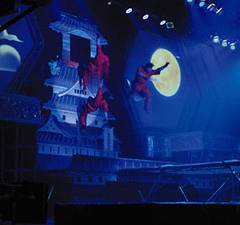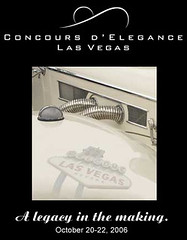One might think it would be easy, but they'd be wrong. Creating a skills-oriented university class from scratch can be a challenging exercise, maybe more so than applying communication practices on a daily basis and certainly more so than developing a program or workshop for working communication professionals.
The program, which I was recently asked to develop for the University of Nevada, Las Vegas (UNLV), is a skills-oriented class with an emphasis on improving written communication for writers, office managers, business professionals, and anyone who wants to enhance the clarity, consistency, and usage of personal or business correspondence. In sum, it's a class on how to be a better editor.
The most immediate challenge is in catering to a broad audience. Editing classes tend to attract a diverse group, ranging from people interested in self-editing manuscripts and essays to office managers and working communication professionals. One of the objectives in developing the class is to teach enough basic information to benefit everyone without spending too much time on subject matter that a portion of the participants already know. How much of a 4-hour class really needs to focus on basic English, defining nouns, pronouns, etc.? Do I really want to diagram sentences? Will fiction writers balk at AP Style?
The second challenge is in self-evaluation, an attempt to determine just what personal experience has made matter of fact to me but what might not be so matter of fact to other people. Sometimes it is challenging to educate people on the merits of AP Style, especially simple rules such as when to capitalize the title of the position and when not to. It's something I've learned to do without thinking much about the reasoning behind the rule.
In the end, with some input from Michelle Baker at UNLV Educational Outreach, I think we have the makings of a solid half-day fall program that focuses on editing essentials such as language skills, mechanics of style, and the importance of correct spelling and punctuation. Of course, the true measure of success will be derived, in part, from student evaluations.
The program, which I was recently asked to develop for the University of Nevada, Las Vegas (UNLV), is a skills-oriented class with an emphasis on improving written communication for writers, office managers, business professionals, and anyone who wants to enhance the clarity, consistency, and usage of personal or business correspondence. In sum, it's a class on how to be a better editor.
The most immediate challenge is in catering to a broad audience. Editing classes tend to attract a diverse group, ranging from people interested in self-editing manuscripts and essays to office managers and working communication professionals. One of the objectives in developing the class is to teach enough basic information to benefit everyone without spending too much time on subject matter that a portion of the participants already know. How much of a 4-hour class really needs to focus on basic English, defining nouns, pronouns, etc.? Do I really want to diagram sentences? Will fiction writers balk at AP Style?
The second challenge is in self-evaluation, an attempt to determine just what personal experience has made matter of fact to me but what might not be so matter of fact to other people. Sometimes it is challenging to educate people on the merits of AP Style, especially simple rules such as when to capitalize the title of the position and when not to. It's something I've learned to do without thinking much about the reasoning behind the rule.
In the end, with some input from Michelle Baker at UNLV Educational Outreach, I think we have the makings of a solid half-day fall program that focuses on editing essentials such as language skills, mechanics of style, and the importance of correct spelling and punctuation. Of course, the true measure of success will be derived, in part, from student evaluations.



















